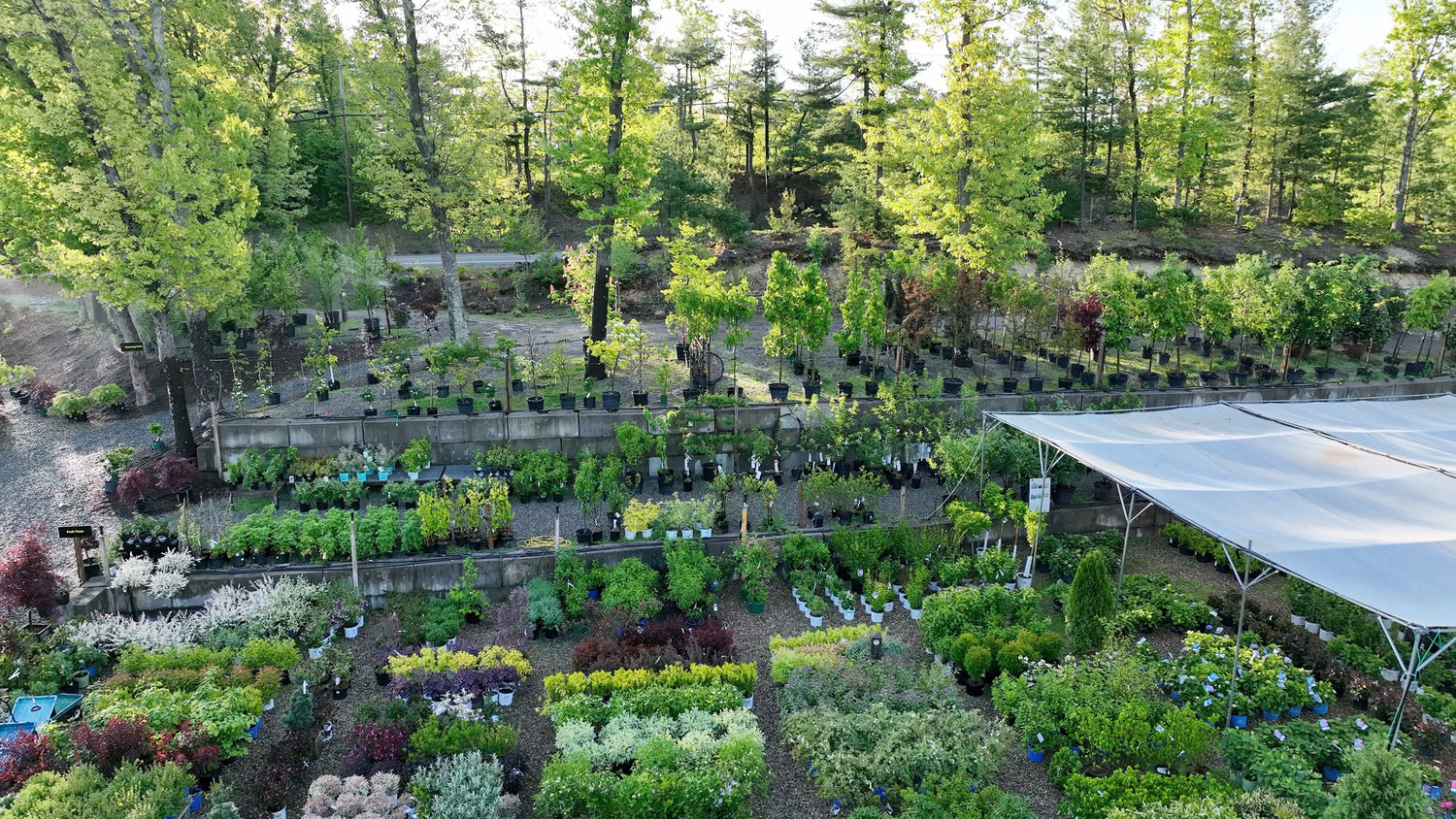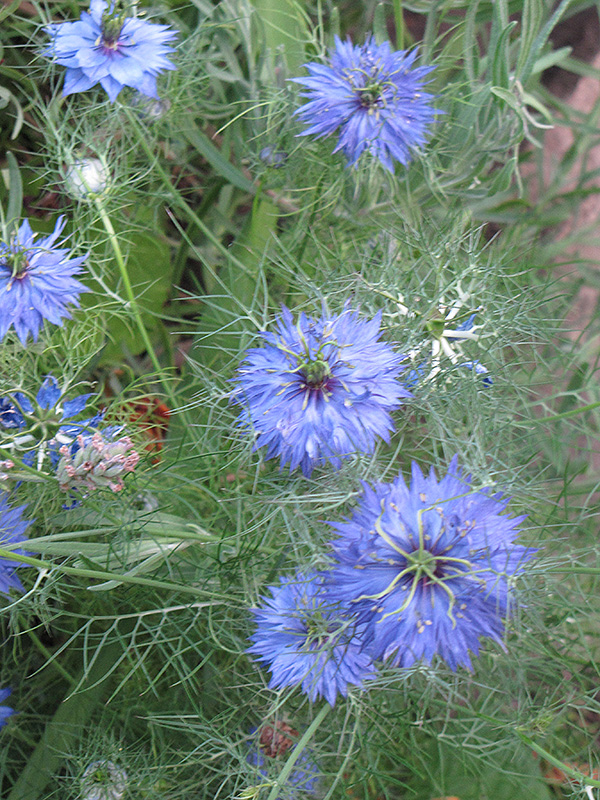Plant Guide
Height: 24 inches
Spacing: 15 inches
Sunlight:
![]()
![]()
Hardiness Zone: (annual)
Other Names: Fennel Flower, Nutmeg Flower, Kalonji
Description:
A fabulous variety producing large flowers that open pale blue and darken to a dazzling blue violet with deep maroon centers; foliage is airy and finely cut; seed pods can be dried and resemble a jester's hat; easy to grow
Ornamental Features
Love-In-A-Mist features unusual blue star-shaped flowers with violet overtones, deep purple eyes and white streaks at the ends of the stems from late spring to early summer. Its deeply cut ferny leaves remain bluish-green in color throughout the season. The fruits are showy green pods displayed in late summer.
Landscape Attributes
Love-In-A-Mist is an herbaceous annual with an upright spreading habit of growth. It brings an extremely fine and delicate texture to the garden composition and should be used to full effect.
This is a relatively low maintenance plant, and should not require much pruning, except when necessary, such as to remove dieback. It is a good choice for attracting bees and butterflies to your yard. It has no significant negative characteristics.
Love-In-A-Mist is recommended for the following landscape applications;
- Accent
- Mass Planting
- General Garden Use
- Container Planting
Planting & Growing
Love-In-A-Mist will grow to be about 24 inches tall at maturity, with a spread of 24 inches. When grown in masses or used as a bedding plant, individual plants should be spaced approximately 15 inches apart. Its foliage tends to remain dense right to the ground, not requiring facer plants in front. This fast-growing annual will normally live for one full growing season, needing replacement the following year.
This plant does best in full sun to partial shade. It prefers to grow in average to moist conditions, and shouldn't be allowed to dry out. It is not particular as to soil type or pH. It is somewhat tolerant of urban pollution. This species is not originally from North America.
Love-In-A-Mist is a fine choice for the garden, but it is also a good selection for planting in outdoor pots and containers. With its upright habit of growth, it is best suited for use as a 'thriller' in the 'spiller-thriller-filler' container combination; plant it near the center of the pot, surrounded by smaller plants and those that spill over the edges. It is even sizeable enough that it can be grown alone in a suitable container. Note that when growing plants in outdoor containers and baskets, they may require more frequent waterings than they would in the yard or garden.



